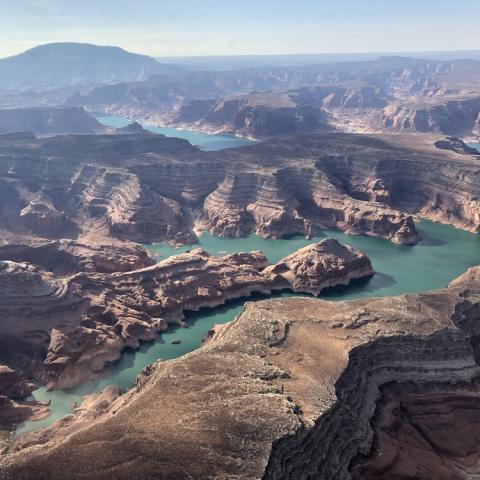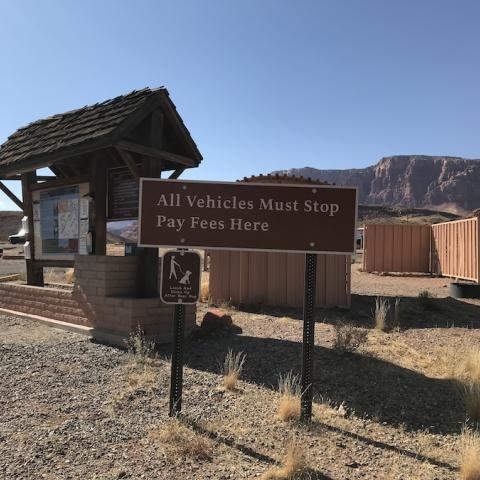
Quagga mussels exposed by lower water levels at Lake Powell / NPS / David Rankin
The partnership of the Utah Department of Natural Resources, the National Park Service, and the boating community has set records in 2018 for vessel inspection and decontamination for quagga mussels. The two agencies contacted over 200,000 visitors, inspected over 64,000 vessels, and decontaminated over 4,200 vessels at five primary launch ramps at Lake Powell. Additionally, over 140 boats were placed in quarantine statewide.
“We appreciate our partnership with the State of Utah and our boating community to contain the quagga mussel infestation to Lake Powell and to prevent its spread to other water bodies,” said Glen Canyon National Recreation Area Superintendent, William Shott. “In 2017, the Department of the Interior released the Safeguarding the West Initiative and we are coordinating with federal, state, tribal and private partners at multiple park units across the west on quagga/zebra mussel prevention and containment efforts.”
“Lake Powell’s quagga mussel situation is always evolving, which requires us to be nimble and proactive as we work together as partnering agencies,” said the Department of Natural Resources Aquatic Invasive Species Program Coordinator, Nathan Owens. “This year we saw lower water levels, resulting in more boats having mussels aboard their vessels than in past years. By working together we identified these new challenges and allowed our inspection and decontamination processes to change to meet the increased needs.”
Earlier this year, technicians were finding quagga mussels on and in boats that had only been in Lake Powell for a day or two, something boaters hadn’t experienced in the past. As a result, the Department of Natural Resources and the National Park Service increased inspection, decontamination, and enforcement efforts. Enhanced training was also incorporated to focus on anchor and sea strainer inspections and the flushing of cooling intakes and water systems. The adjustments proved successful.
More will be done in 2019 to further expand efforts to keep quagga mussels from reaching other Utah lakes and reservoirs. Governor Gary Herbert proposed in his 2020 fiscal year budget plan an additional $405,000. If approved, new aquatic invasive species funding will be used to add needed technicians and equipment to increase the efficiency of inspection and decontamination efforts at Lake Powell. Aquatic invasive species can impair the delivery of water and power, diminish boating and fishing, and devastate lake ecosystem health. Once they are present, quagga mussels cannot be eradicated and the efforts to contain and manage the impacts can cost millions of dollars.
Combining containment efforts with proactive prevention at receiving waters is the most effective way to stop the spread and cannot be done by one agency alone. It is only accomplished through agency collaboration and ongoing partnerships with the boating community. The boating public is the first and most important line of defense. By effectively cleaning, draining and drying their vessels before launching in another body of water they can help stop the spread of invasive species.
First introduced by the shipping industry to the Great Lakes in the 1980s, zebra and quagga mussels spread outward via natural dispersion and watercraft to other regions of the country. They are among the many invasive species causing economic and ecological harm across the United States. While inspection and decontamination efforts mitigate risk, they are not always 100 percent effective. All boaters are responsible to adequately clean, drain and dry after every use. Through containment and prevention programs and the help of the boating community, we can safeguard our national parks, state lakes and reservoirs and other western waters.



 Support Essential Coverage of Essential Places
Support Essential Coverage of Essential Places







Add comment